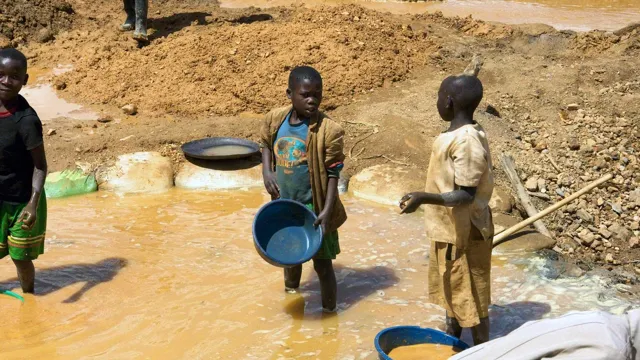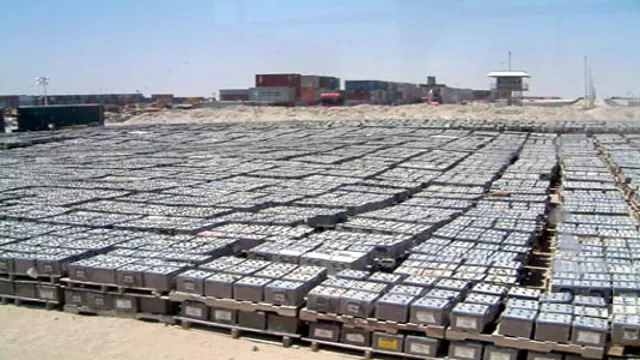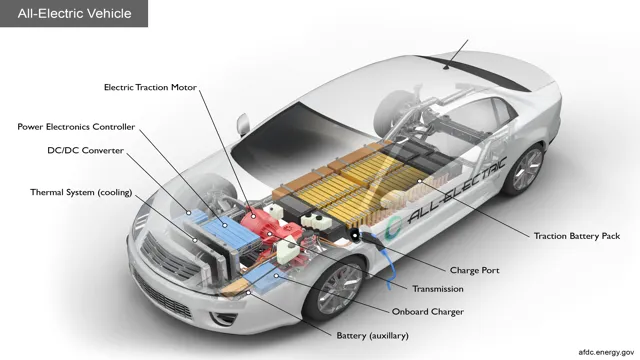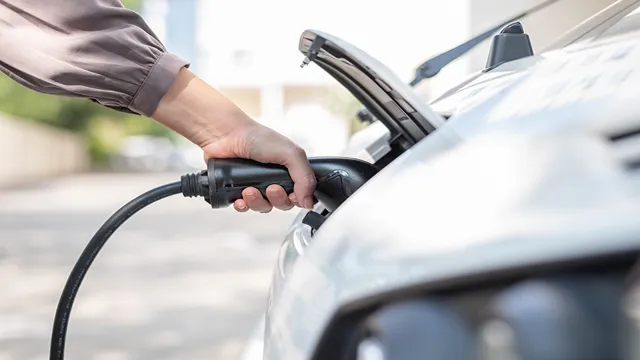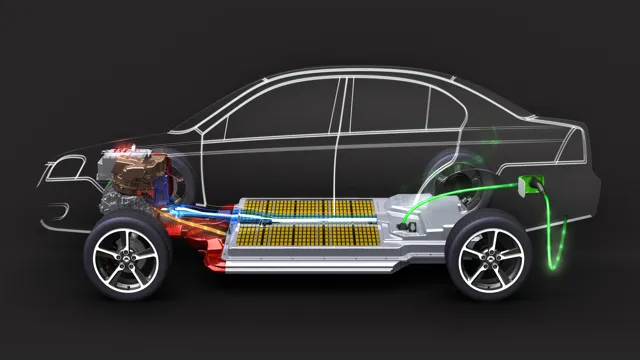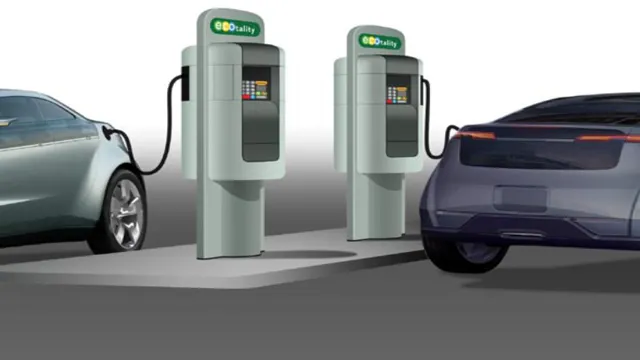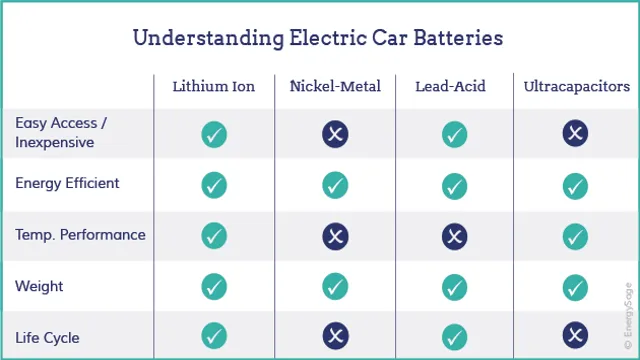Uncovering the Dark Side of Electric Car Batteries: The Shocking Truth Behind Child Labor
Do you know the real cost of the electric car battery in your child’s toy car? Despite being marketed as eco-friendly and sustainable, electric car batteries are hiding a dark truth about child labor in the mining industry. The mining of minerals like cobalt, which are used to make these batteries, takes place in developing countries where children as young as six years old work in hazardous conditions for little to no pay. These children are exposed to toxic chemicals and work in mines where accidents and deaths are common.
Electric vehicle manufacturers often tout the benefits of electric cars while neglecting to mention the human cost of producing their batteries. The growing demand for these batteries is fueling the exploitation of vulnerable children, causing irreparable damage to their health and future opportunities. It’s time to acknowledge the ugly truth behind the electric car battery and demand change.
As consumers, we have the power to influence companies to prioritize ethical sourcing and production methods. Let’s not turn a blind eye to the exploitation of children and demand a more sustainable future for all.
Overview
Electric car battery production has gained a lot of attention in recent years, and with good reason. While electric cars are often touted as a greener alternative to traditional gas-guzzlers, the sourcing of the materials for the batteries used in these cars often involves child labor. A lot of these materials, such as cobalt, are mined in countries with lax labor laws and limited enforcement measures, leading to exploitation and forced labor.
The growing demand for electric cars puts pressure on these countries to produce more batteries at a faster rate, contributing to the cycle of exploitation. As consumers, we have a responsibility to be aware of the human cost of our purchases and demand more ethical sourcing practices from car manufacturers. By choosing to support companies that prioritize transparency and ethical labor practices, we can help create a better future for both the environment and the people involved in its production.
It’s time we start asking ourselves: are we really comfortable driving a car that was made at the expense of someone else’s well-being?
The use of cobalt in electric car batteries
Electric car batteries are becoming more popular as people look for ways to reduce their carbon footprint. However, the batteries that power these cars require a variety of rare metals and elements to function effectively. Cobalt is one of the most essential components of an electric car battery, as it plays a critical role in stabilizing and controlling the battery’s temperature.
Cobalt is also known for its ability to increase the overall lifespan of a battery, ensuring it can withstand repeated charges and discharges. Despite the benefits of cobalt, there are concerns about the ethical implications of its mining in certain parts of the world. As the demand for electric cars grows, it is critical that we find ways to source cobalt sustainably, so we can continue to pursue a green future without causing harm to people or the environment.
The connection between cobalt mining and child labor
Cobalt mining has been a controversial topic in recent years due to the connection between the industry and child labor. Cobalt is a vital component in the production of batteries, which are necessary for electronic devices such as smartphones and electric cars. The majority of cobalt comes from the Democratic Republic of Congo (DRC), one of the poorest countries in the world.
In this country, child labor is prevalent, with estimates of up to 40,000 children working in the mines. These children work long hours in dangerous conditions, earning very little money. The issue of cobalt mining and child labor has put pressure on technology companies to address the problem by improving supply chain transparency and sourcing cobalt from mines that do not use child labor.
Consumers can also play a role by educating themselves about the issue and choosing products that are responsibly sourced. It is everyone’s responsibility to ensure that the technology we rely on is not contributing to human rights violations.
Data and Statistics
The production of electric car batteries has been linked to child labor in certain parts of the world. This is because the mining of certain minerals required for the batteries, such as cobalt, often happens in regions where child labor is prevalent. The increased demand for electric vehicles has also put pressure on the industry to quickly produce larger quantities of batteries, which can exacerbate the problem.
However, it is important to note that not all electric vehicle manufacturers are equally implicated in this issue. Some companies have taken steps to ensure that their supply chains are free of child labor, while others still have room for improvement. It is important for consumers to do their research and support companies that prioritize ethical sourcing and labor practices in the production of electric car batteries.
Number of children working in cobalt mines
The number of children working in cobalt mines is a serious cause for concern. According to the United Nations, approximately 40,000 children work in mines in the Democratic Republic of Congo, where cobalt is one of the country’s main exports. Many of these children work long hours in dangerous conditions, with little or no access to education or healthcare.
It is estimated that around 20% of cobalt mining in the country is carried out by children, and although progress has been made in recent years, there is still a lot to be done to eradicate child labor from the mining industry. As consumers, we have a responsibility to ensure that the products we buy are ethically produced and do not contribute to child labor or other human rights abuses. By supporting companies that are committed to responsible sourcing and ethical practices, we can help to create a fairer and more just world for everyone.
Companies involved in child labor in cobalt mines
According to recent reports, major companies involved in the cobalt industry have been linked to child labor in mines. Cobalt is a key component used in the production of lithium-ion batteries that power everything from smartphones to electric cars. The Democratic Republic of Congo (DRC) produces over two-thirds of the global supply of cobalt, and unfortunately, the use of child labor in the sector is widespread.
It is estimated that around 20% of the cobalt mined in the country comes from artisanal mines where children as young as seven are working in hazardous conditions. Major companies like Apple, Samsung, and Tesla have all been implicated in the use of cobalt mined by children in the DRC. This has led to widespread calls for greater transparency and accountability throughout the supply chain of these companies.
While some progress has been made in improving working conditions in the cobalt industry, much more needs to be done to ensure that children are not being exploited in the production of the products we all rely on.
Impact on local communities affected by child labor
Child labor has a significant impact on local communities worldwide. According to recent data and statistics, approximately 152 million children aged between 5 to 17 are engaged in child labor globally. This number equates to almost 1 in 10 children in the world, and alarmingly, 71% of them labor in hazardous conditions.
Child labor has harmful effects on a child’s mental and physical development, health, and education. The impact extends to the community, where child labor creates a cycle of poverty, low literacy rates, and poor living conditions. These factors affect the community’s economic growth, education, and health sectors.
In extreme cases, communities may suffer from exploitation and human trafficking, causing long-term damage to the social, economic, and emotional fabric of the area. Thus, it is imperative that governments, organizations, and individuals work together to eradicate child labor and break the cycle of poverty, exploitation, and underdevelopment.
Solutions and Actions
As consumers, we often forget about the social and environmental impact of the goods we purchase. But when it comes to electric car batteries, there can be a dark reality hidden within their production. Child labor is a pressing issue in countries where the mining of cobalt, a key component in lithium-ion batteries, takes place.
It’s essential to consider the ethical practices of companies we buy from and look for certifications that ensure child labor isn’t part of their supply chain. Additionally, supporting companies that use alternative materials and striving for sustainable production processes can help reduce the demand for these types of batteries. As individuals, making conscious decisions with our purchases can have a significant impact on the bigger picture.
By educating ourselves on these issues and advocating for change, we can work towards a more sustainable and ethical future. Remember, every small action counts towards creating a better world for ourselves and future generations.
The role of government and policy change
When it comes to addressing environmental issues, government action is a crucial aspect of creating change. Policies that prioritize sustainability and reduce carbon emissions are essential in reducing the impact of climate change. One important policy change that governments can implement is the promotion of renewable energy sources, such as wind and solar power.
This shift away from traditional fossil fuels can lead to a significant reduction in greenhouse gas emissions. Additionally, investing in public transportation and promoting energy-efficient buildings can also play a role in mitigating the effects of climate change. Governments can also regulate industries and encourage corporations to adopt more environmentally conscious practices.
While individual actions like reducing plastic use and driving less are important, government policies and regulations are necessary for large-scale change. It is crucial that we continue to push for government action and hold our leaders accountable for creating impactful and sustainable policies.
The responsibility of car companies and consumers
When it comes to combating climate change and reducing carbon emissions, it is important for both car companies and consumers to take responsibility and take action. Car companies can contribute by investing in alternative fuels, such as electric or hydrogen-powered vehicles, and implementing sustainable manufacturing practices. Consumers can contribute by choosing to buy environmentally-friendly cars, reducing the number of cars they own, using public transportation or carpooling, and driving more efficiently.
Furthermore, car companies can educate consumers on the impact of carbon emissions and the benefits of sustainable transportation options. Similarly, consumers can demand more sustainable options from car companies, promoting the development and availability of eco-friendly cars. It is only through collaboration and collective effort that we can make substantial progress towards reducing carbon emissions and combating climate change.
Conclusion
In conclusion, the use of electric car batteries that rely on child labor is a shockingly ethical problem. Despite the positive steps towards combating climate change and reducing carbon emissions, the exploitation of vulnerable children in developing countries is not a sustainable solution. We must strive to find an alternative to this egregious exploitation and work towards creating a greener, more just future for all.
After all, the power of electric cars should be found in their ability to move us forward, not in the exploitation of the most vulnerable among us.”
FAQs
How are electric car batteries connected to child labor?
Many of the minerals used in electric car batteries, such as cobalt and lithium, are often mined in countries with poor labor standards, leading to concerns about the use of child labor.
What is being done to address child labor in electric car battery production?
Some companies are taking steps to ensure that their supply chains are free from child labor, including conducting audits and inspections of their suppliers. Additionally, some industry groups are working to establish responsible sourcing standards for minerals used in batteries.
Are there any alternatives to using minerals associated with child labor in electric car batteries?
Some companies are exploring alternative materials for use in batteries, such as sodium-ion and solid-state batteries. However, these technologies are still in the research and development phase and may not be commercially viable for several years.
How can consumers help address child labor in electric car battery production?
Consumers can support companies that prioritize responsible sourcing and engage in transparency around their supply chains. They can also advocate for stronger regulations and industry standards to prevent child labor and other forms of exploitation in the mining sector.

